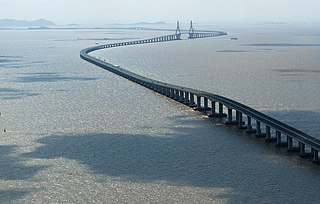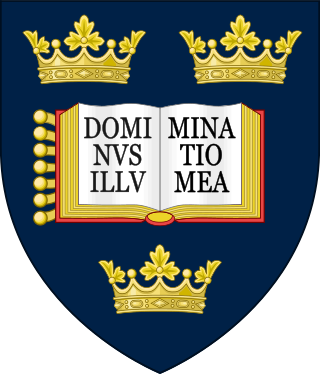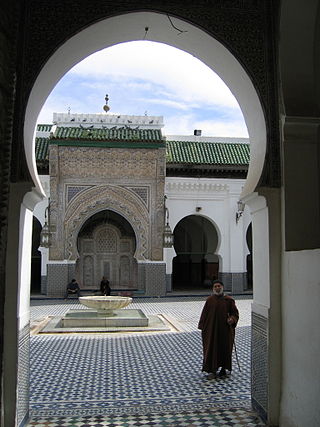Related Research Articles

Intellectual property (IP) is a category of property that includes intangible creations of the human intellect. There are many types of intellectual property, and some countries recognize more than others. The best-known types are patents, copyrights, trademarks, and trade secrets. The modern concept of intellectual property developed in England in the 17th and 18th centuries. The term "intellectual property" began to be used in the 19th century, though it was not until the late 20th century that intellectual property became commonplace in most of the world's legal systems.

The World Intellectual Property Organization is one of the 15 specialized agencies of the United Nations (UN). Pursuant to the 1967 Convention Establishing the World Intellectual Property Organization, WIPO was created to promote and protect intellectual property (IP) across the world by cooperating with countries as well as international organizations. It began operations on 26 April 1970 when the convention entered into force. The current Director General is Singaporean Daren Tang, former head of the Intellectual Property Office of Singapore, who began his term on 1 October 2020.

Science and technology in China have developed rapidly during the 1980s to 2010s, and major scientific and technological achievements have been made since the 1980s. From the 1980s to the 1990s, the Chinese government successively launched the "863 Plan" and the "Strategy for Rejuvenating the Country through Science and Education", which greatly promoted the development and progress of China's science and technology. The Chinese government has placed emphasis through funding, reform, and societal status on science and technology as a fundamental part of the socio-economic development of the country as well as for national prestige.
Technology transfer (TT), also called transfer of technology (TOT), is the process of transferring (disseminating) technology from the person or organization that owns or holds it to another person or organization, in an attempt to transform inventions and scientific outcomes into new products and services that benefit society. Technology transfer is closely related to knowledge transfer.
World Intellectual Property Day is observed annually on April 26. The event was established by the World Intellectual Property Organization (WIPO) in 2000 to "raise awareness of how patents, copyright, trademarks and designs impact on daily life" and "to celebrate creativity, and the contribution made by creators and innovators to the development of economies and societies across the globe". April 26 was chosen as the date for World Intellectual Property Day because it coincides with the date on which the Convention Establishing the World Intellectual Property Organization entered into force in 1970. World Intellectual Property Day is WIPO’s largest intellectual property (IP) public outreach campaign.
The Access to Knowledge (A2K) movement is a loose collection of civil society groups, governments, and individuals converging on the idea that access to knowledge should be linked to fundamental principles of justice, freedom, and economic development.
Research Corporation for Science Advancement (RCSA) is an organization in the United States devoted to the advancement of science, funding research projects in the physical sciences. Since 1912, Research Corporation for Science Advancement has identified trends in science and education, financing thousands of scientific research projects that have changed our world.

James Packard Love is the director of Knowledge Ecology International, formerly known as the Consumer Project on Technology, a non-governmental organization with offices in Washington, D.C., and Geneva, that works mainly on matters concerning knowledge management and governance, including intellectual property policy and practice and innovation policy, particularly as they relate to health care and access to knowledge.

Science and technology in Germany has a long and illustrious history, and research and development efforts form an integral part of the country's economy. Germany has been the home of some of the most prominent researchers in various scientific disciplines, notably physics, mathematics, chemistry and engineering. Before World War II, Germany had produced more Nobel laureates in scientific fields than any other nation, and was the preeminent country in the natural sciences.

Hinari Access to Research for Health Programme was set up by the World Health Organization and major publishers to enable developing countries to access collections of biomedical and health literature. There are up to 15,000 e-journals and up to 60,000 online books available to health institutions in more than 10 countries. Hinari is part of Research4Life, the collective name for five programs - Hinari, AGORA, OARE, ARDI and GOALI. Together, Research4Life provides lower income countries with free or low cost access to academic and professional peer-reviewed content online.

Oxford University Innovation Limited (OUI) is a British technology transfer and consultancy company created to manage the research and development (R&D) of University spin-offs. OUI is a wholly owned subsidiary of the University of Oxford, and is located on Botley Road, Oxford, England. OUI was previously known as Isis Innovation (1988–2016) and Oxford University Research and Development Ltd (1987–1988).

Science and technology in Morocco has significantly developed in recent years. The Moroccan government has been implementing reforms to encourage scientific research in the Kingdom. While research has yet to acquire the status of a national priority in Morocco, the country does have major assets that could transform its R&D sector into a key vehicle for development. The industry remains dominated by the public sector, with the universities employing 58% of researchers. Morocco's own evaluation of its national research system – carried out in 2003 – revealed that the country has a good supply of well trained high quality human resources and that some laboratories are of very high quality. However, the greatest gap at that point of time lied in the link between research and innovation. The educational qualifications of Moroccan researchers have increased significantly since the early 1990s. The University of Al-Karaouine is considered the oldest continuously operating academic degree-granting university in the world.
AGORA is the acronym for the Access to Global Online Research on Agriculture program. It was launched in 2003 by the Food and Agriculture Organization of the United Nations (FAO) in partnership with Cornell University and up to 70 of the world's leading science publishers, to provide free or low-price online access to leading peer-reviewed publications in agriculture and related biological, environmental and social sciences to more than 100 lower-income countries.
In Bangladesh, the cultivation of modern science started during the British rule when the first modern educational institutions, focused on scientific fields, were established in the country. The University of Dhaka, established in 1921, acted as the driving force in producing many renowned scientists in Bangladesh.
Patent analysis is the process of analyzing patent documents and other information from the patent lifecycle. The field of patent analytics uses patent analysis to obtain deeper insights into different technologies and innovation. Other terms are sometimes used as synonyms for patent analytics: patent landscaping, patent mapping, or cartography. However, there is no harmonized terminology in different languages, including in French and Spanish, while in some languages terms are borrowed from other languages. Patent analytics encompasses the analysis of patent data, analysis of the scientific literature, data cleaning, text mining, machine learning, geographic mapping, and data visualisation.
Science and technology in Kazakhstan – government policies to develop science, technology and innovation in Kazakhstan.
This article summarizes the development of science and technology in Cambodia from a policy perspective.
The main managing agency responsible for science and technology (S&T) in Vietnam is the Ministry of Science and Technology (MOST). MOST's responsibilities include scientific research, technology development and innovation activities; development of science and technology potentials; intellectual property; standards, metrology and quality control; atomic energy, radiation and nuclear safety; and state management on public services in fields under the Ministry’s management as stipulated by law.
Science and Technology is one of the main field of the state policy that generally affects all aspects in Azerbaijan. Azerbaijan National Academy of Sciences (ANAS) is considered as the central agency for science and technology in order to implement state policy in this field.

The WIPO Academy is the training arm of the World Intellectual Property Organization (WIPO), it was established in 1998. It offers intellectual property (IP) education, training and IP skills-building to government officials, inventors, creators, business professionals, small and medium enterprises (SMEs), academics, students and individuals interested in IP. The Academy hosts IP courses through its four programs: the Professional Development Program, University Partnerships, Distance Learning and WIPO Summer Schools.
References
- 1 2 "ARDI – Research for Innovation". WIPO. Retrieved 10 December 2013.
- ↑ "Partners' Statement of Intent".
- ↑ "Programmes". Research4Life. Archived from the original on 3 July 2018. Retrieved 10 December 2013.
- ↑ "About". Research4Life. Retrieved 10 December 2013.
- ↑ "WIPO Launches On-line Tool to Facilitate Access to Targeted Scientific Information". WIPO. 23 July 2009. Retrieved 10 December 2013.
- ↑ "Eligibility". WIPO. Retrieved 10 December 2013.
- ↑ "FAQ". WIPO. Archived from the original on 14 February 2013. Retrieved 10 December 2013.